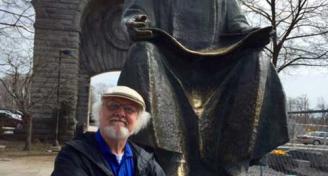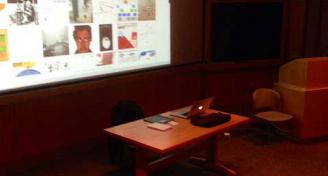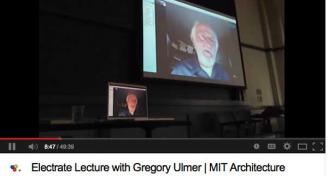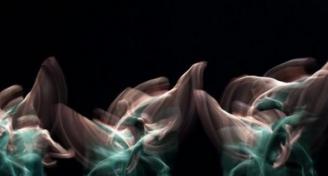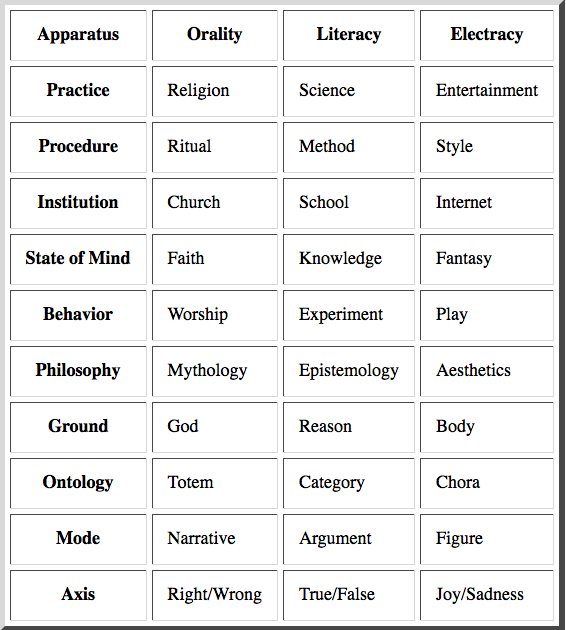
Debriefing (MIT)
Dear Professor Ulmer,It was a pleasure hearing your talk at MIT last Friday. I don't think I have been to a more electrifying talk in recent times. I have been going through some of your work, and was particularly fascinated by what you had to say in 'Ulmer Tapes' - a series of videos posted on YouTube, through which I was able to put down some questions. Before the lecture, I had to post initiation question(s) for your talk in order to generate a discussion. If you would be kind enough to give me your insights on these questions, it would be of great help to initiate the discussion this coming Friday:I’m particularly interested in your ‘apparatus’ theory, where you identify the three-tiered matrix of the frameworks for orality and literacy, as technology, institutional formation and subject formation. To recap, the technological framework for orality was language, religion/ritual its institutional formation and ‘spirit’ as something essentially external to the individual was the subject formation. Similarly, alphabet defined the technological framework for literacy, academy its institutional formation and finally, ‘self-hood’ as something internal to the individual as the subject formation. You state that the ‘electracy’ apparatus will be something that has to be invented and will be essentially different from how we know and understand our world today. My question would be whether, looking at recent events that have been triggered by what we now call ‘social media’, one can assume that the institutional formation in the electracy apparatus as we know it will be inherently much more fragmentized as opposed to that of being a formal entity such as ‘academy’? Also, can we assume that this apparatus will not be an invention, rather than an ‘arriving at’ by the collective consciousness of the people? One could also put this question this way: will the subject formation, which I believe informs institutional formation, be something that we could call ‘meta-selfhood’, in response to easy accessibility to information, and by extension, to choice and expression?
http://www.clas.ufl.edu/users/glue/diagrams/diagrams.html (click on "apparatus2")
The principle is that practices, institutions, behaviors and the like are invented consciously and deliberately, just as the equipment is invented, with the qualification being in all cases that the consequences of any given invention type are unforeseen and probably unforeseeable. The table I generated proposes that Entertainment is the frame within which electracy is emerging, specifically realized in the capitalist corporation. The entertainment corporation is to electracy what the religious church is to orality or the scientific school is to literacy. A key point is that the new apparatus does not replace the old ones, but displaces them while opening a new dimension of possible reality. The model of evolution is often evoked to describe this historical process: that the process has two operating processes: a stochastic production of possibilities; some systematic rule of selection (from Gregory Bateson, for example, Mind and Nature). Many behaviors may be generated in the emerging conditions of the global information economy, for example, but only certain ones will survive and develop, depending on what the institutional sites of support are able to actualize. The related point, to which you rightly call attention, is that the emerging formation of an electrate subject is that of a collective singularity of group identity. This group identity does not replace religious soul or literate self, but supplements these with some "conscientization" of relational or intersubjective agency. The institutional supports for this conscientization include social media software, the Internet as institution, pop culture production, and commercial or commodity promotion not just of tastes but of lifestyles.
Most importantly, my interest is inquiring about the anticipated role of virtuality in the formation of an electracy apparatus. Orality did not require physicality as the core of its technology, but the method of transmission was essentially physical, as is the case with literacy where the method of transmission was very physical too (or its genesis was). Electracy, with the 1′s and 0′s being at the core of it, will predominantly be a virtual apparatus, and this is where it’s going to be most ‘different’. As an architect, this brings to my mind a phenomenal change in not only architecture as an individual unit, but also in the way entire cities are structured and how the global network develops. This points towards an essentially very different way of interaction amongst individuals, and (if they still exist as entities) communities, cities and entire regions. I’m particularly interested in hearing your views on the phenomenon of virtuality vis-a-vis electracy. How do you think this will link itself to the idea of ‘performance’ as we understand it right now?
I would love to hear any more thoughts on your work and theories, and if you have any recommendations about where you'd ideally want the discussion to lead, that would be great.
I suppose a framing issue that electracy poses to MIT as an institution, and to individual disciplines within the institutions of education and science, is how or if they plan to take into account the lessons of apparatus history, which is to say that school and science are being displaced by new forces with quite different concerns and values. The history of relations between religion and science is not pretty. Will relations with electracy be more cooperative and constructive? Where are the sites of possible alliance or dysfunction?
I would enjoy hearing more about how the semester goes. Please give my regards to everyone.


